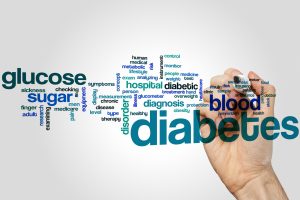 According to the National Institutes of Health, the average American can live an average of 79 years. However, did you know that a few small lifestyle changes could add years to your life? It was found that for every few pounds you lose you could be adding years to your life.
According to the National Institutes of Health, the average American can live an average of 79 years. However, did you know that a few small lifestyle changes could add years to your life? It was found that for every few pounds you lose you could be adding years to your life.
A recent study in Nature Communications looked at genetic data from 600,000 people in North America, Europe and Australia. Smoking, body fat, thought processes and the genes related to such can affect life span.
Of all conditions observed, smoking and traits linked with lung cancer were found to have the greatest impact on reducing life span. Smoking one pack of cigarettes a day over a lifetime can lead to a loss of seven years of life. However, if a person quits smoking, they can get back those years and live as long as someone who has never smoked.
Obesity is a common risk factor for heart disease and diabetes. However, body fat percentage and other factors linked with diabetes were found to decrease life span. Two months of life can be lost for every 2.2 pounds of excess body fat. This could be related to the increased risk of obesity-related conditions related to excess weight, but the direct reason for this result is not confirmed.
Finally, those with an open mind may live longer than those who were not. For every year of studying done beyond school, a year is added to a person’s life. This could be related to those studying more having sharper minds as they age, but it is not confirmed why. By maintaining mental sharpness, you are helping to keep the body’s software up to date which aids in overall wellness.
Other Ways to Add Years to Your Life
If you want to add years to your life, there are many things you can do.
- Eat better: A balanced diet of fruits and vegetables provide fiber that can help manage weight and keep blood glucose levels stable.
- Stay active: A good balance of cardio, resistance, and flexibility exercises can help you stay young as you age. Resistance exercises such as lifting weights, working with resistance bands, or performing push-ups, can help maintain lean mass. Lean mass can help keep you more mobile as you age and in turn prevent injury. In addition, lean mass can keep bones and joints strong and improve insulin resistance.
- Sleep more: While you sleep, the body regulates fluid, blood glucose, levels, and blood pressure. Therefore without the recommended 6-8 hours of sleep a night, you may be putting yourself at risk for chronic disease. If you have trouble sleeping, try reducing screen time before bed, getting blackout blinds, stop eating and drinking two hours before bedtime, or get a white noise machine. Check with your healthcare provider if pain or other health issues that may be keeping you up at night.
- Practice preventative health: Be sure to visit your doctor every year or more often to check for chronic disease risk factors. Knowing your numbers such as blood pressure, blood glucose, cholesterol, triglycerides, and vitamin levels are important for health tracking. If any of your numbers are out of range, you could increase risk for chronic disease and decrease quality of life.
- Take a multivitamin: To ensure you are getting your daily nutrients, try the Zestia multivitamin by Vita Sciences. Zestia contains a combination of fruit and vegetable extracts, probiotics, and digestive enzymes to help support an optimal quality of life.
Sources:
Harvard Health Publishing (accessed October 16, 2017) “Tips for longer life”
Medline Health News (October 13, 2017) “Good Lifestyle Choices Adds Years to Your Life”
National Institutes of Health News in Health (June 2016) “Can You Lengthen Your Life?”
 you have high blood pressure, heart disease may be the health concern most on your mind. However, high blood pressure can be a risk factor for more than just heart conditions. A recent study has found that women in their 40’s with high blood pressure have an increased risk of dementia.
you have high blood pressure, heart disease may be the health concern most on your mind. However, high blood pressure can be a risk factor for more than just heart conditions. A recent study has found that women in their 40’s with high blood pressure have an increased risk of dementia. When you hear about brain health, you may think of lowering stress and anxiety. However, having a healthy brain also involves reducing risk of stroke as well as memory conditions like Alzheimer’s and dementia. A recent report has found that keeping your body healthy is vital to keeping your brain healthy.
When you hear about brain health, you may think of lowering stress and anxiety. However, having a healthy brain also involves reducing risk of stroke as well as memory conditions like Alzheimer’s and dementia. A recent report has found that keeping your body healthy is vital to keeping your brain healthy. When you take a medicine over the counter, you likely focus mostly on the benefits it can provide you. However, it’s possible to experience some harmful health effects from use of over-the-counter medicines. A recent study has found that some common painkillers used by those with arthritis may cause high blood pressure.
When you take a medicine over the counter, you likely focus mostly on the benefits it can provide you. However, it’s possible to experience some harmful health effects from use of over-the-counter medicines. A recent study has found that some common painkillers used by those with arthritis may cause high blood pressure. are? If you are a young adult, it is very likely that these questions have not been at the forefront of your mind when it comes to your health. A recent study showed that in 2013-2014, only half of the 6.7 million young adults from 18 to 39 years old were treated for high blood pressure. Meanwhile, only 40-percent got their blood pressure under control. However, blood pressure control is not only important for heart health, but for brain health as well. Recent studies have linked normal blood pressure levels with improved cognition in older adults.
are? If you are a young adult, it is very likely that these questions have not been at the forefront of your mind when it comes to your health. A recent study showed that in 2013-2014, only half of the 6.7 million young adults from 18 to 39 years old were treated for high blood pressure. Meanwhile, only 40-percent got their blood pressure under control. However, blood pressure control is not only important for heart health, but for brain health as well. Recent studies have linked normal blood pressure levels with improved cognition in older adults. recent report by the Centers for Disease Control and Prevention (CDC) says that over 100 million people in the United States have diabetes or prediabetes.
recent report by the Centers for Disease Control and Prevention (CDC) says that over 100 million people in the United States have diabetes or prediabetes.
 disease risk. These rules include:
disease risk. These rules include: benefit those with anxiety, depression, insomnia, and even irritable bowel syndrome. Furthermore, in those with anxiety, meditation helps diffuse worries by improving focus on the present-day.
benefit those with anxiety, depression, insomnia, and even irritable bowel syndrome. Furthermore, in those with anxiety, meditation helps diffuse worries by improving focus on the present-day.
